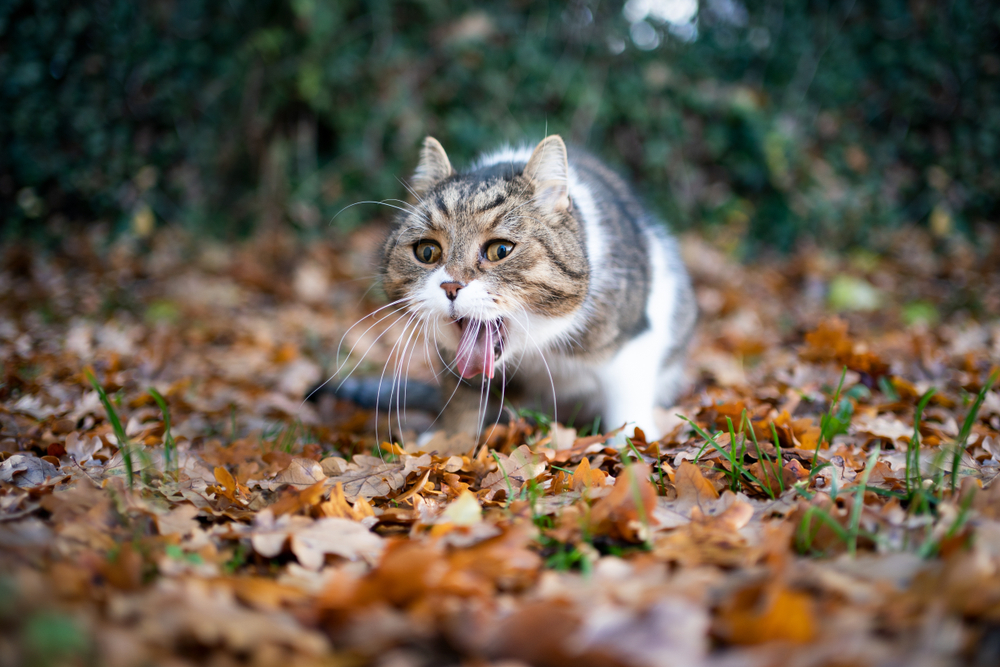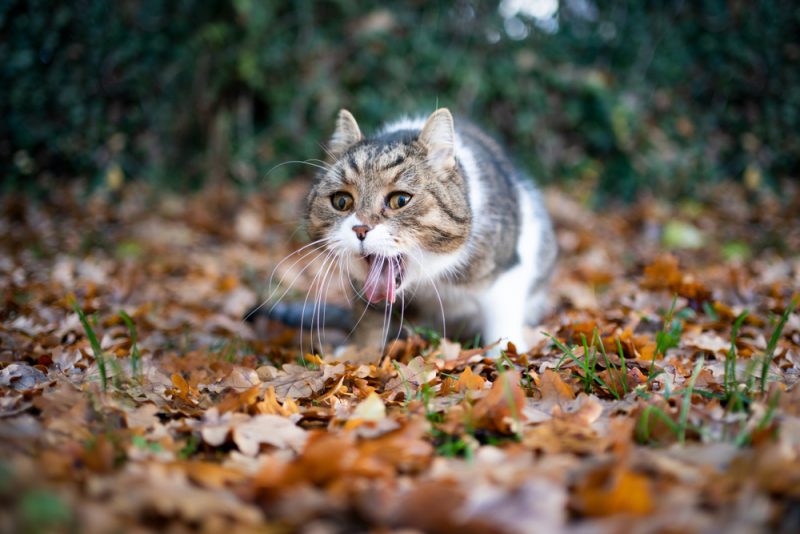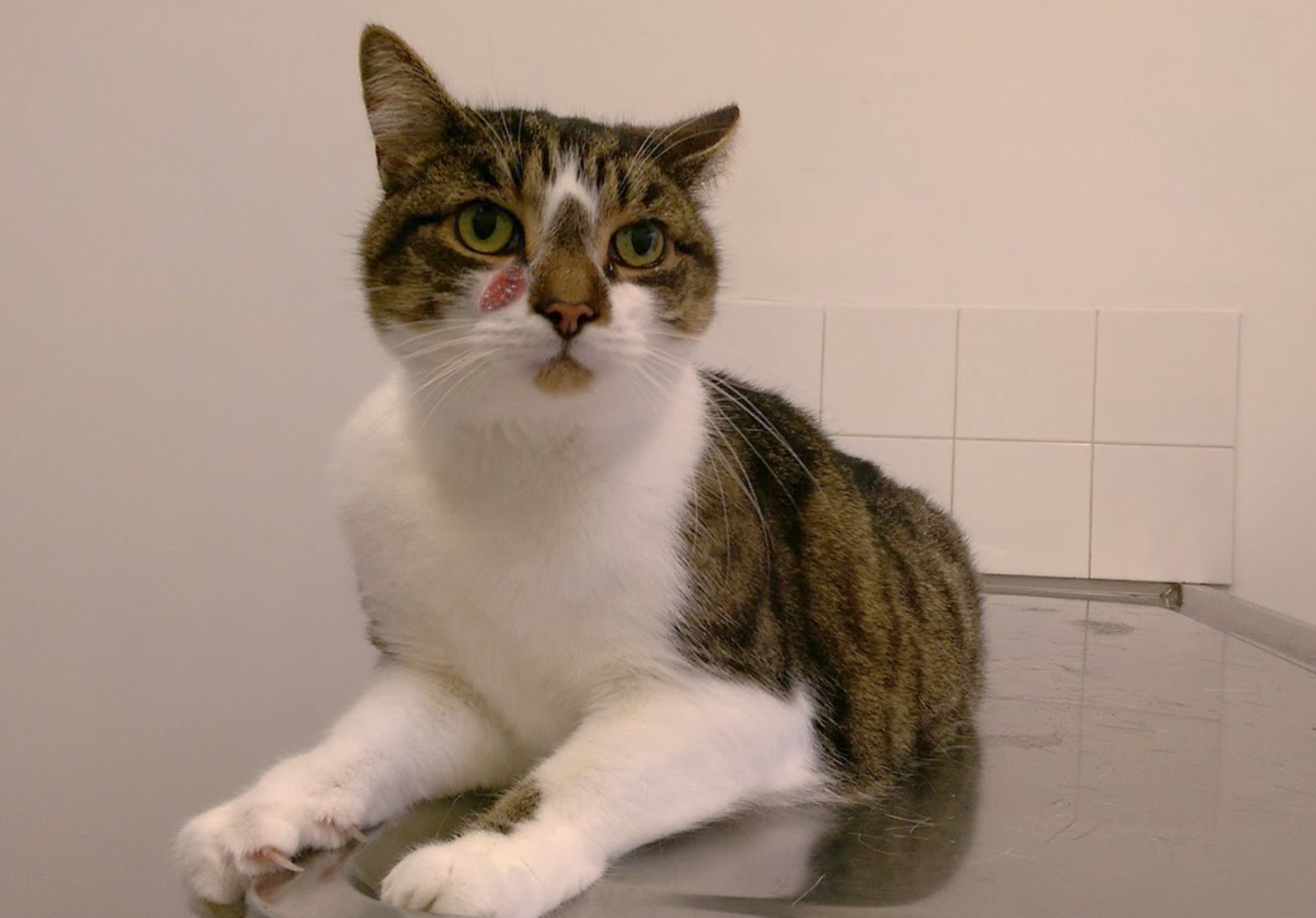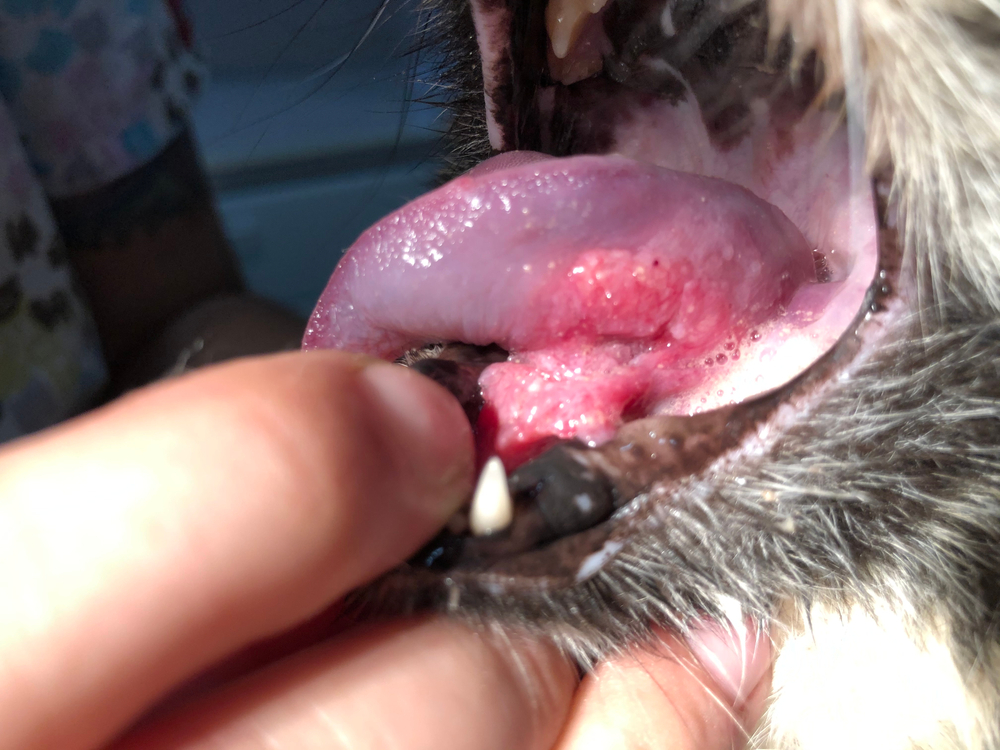Cats are rather infamous for being “vomity” creatures, with hairballs being the cause of most feline gastrointestinal evacuations. Because of this, a certain amount of vomiting is considered normal for cats, sometimes making it more difficult to recognize when there is a problem.
There are a few key points to consider when assessing your cat’s upchuck habits, including whether we are dealing with vomiting or regurgitation, how often they are doing it, and the amount, consistency, and color of what they are bringing up.
Although cats will experience the odd vomit from time to time, any cat that is vomiting frequently or violently, is losing weight, or is showing any other signs of illness should be assessed by your veterinarian without further delay. If your cat is throwing up brown liquid, you are going to want to know why. Fortunately, you have found yourself in the right place.
Let’s take a look at how the color of your cat’s vomit can be a useful diagnostic tool, as well as what else you need to know.
The 3 Reasons Your Cat Is Throwing Up Brown Liquid
The color of your cat’s vomit can give us a surprising amount of information about what’s driving the problem. For example, yellow vomit (bile) often indicates an empty stomach, clear vomit suggests they’ve been drinking a lot of water, and pink vomit can be a sign of mild bleeding in the stomach or esophagus.
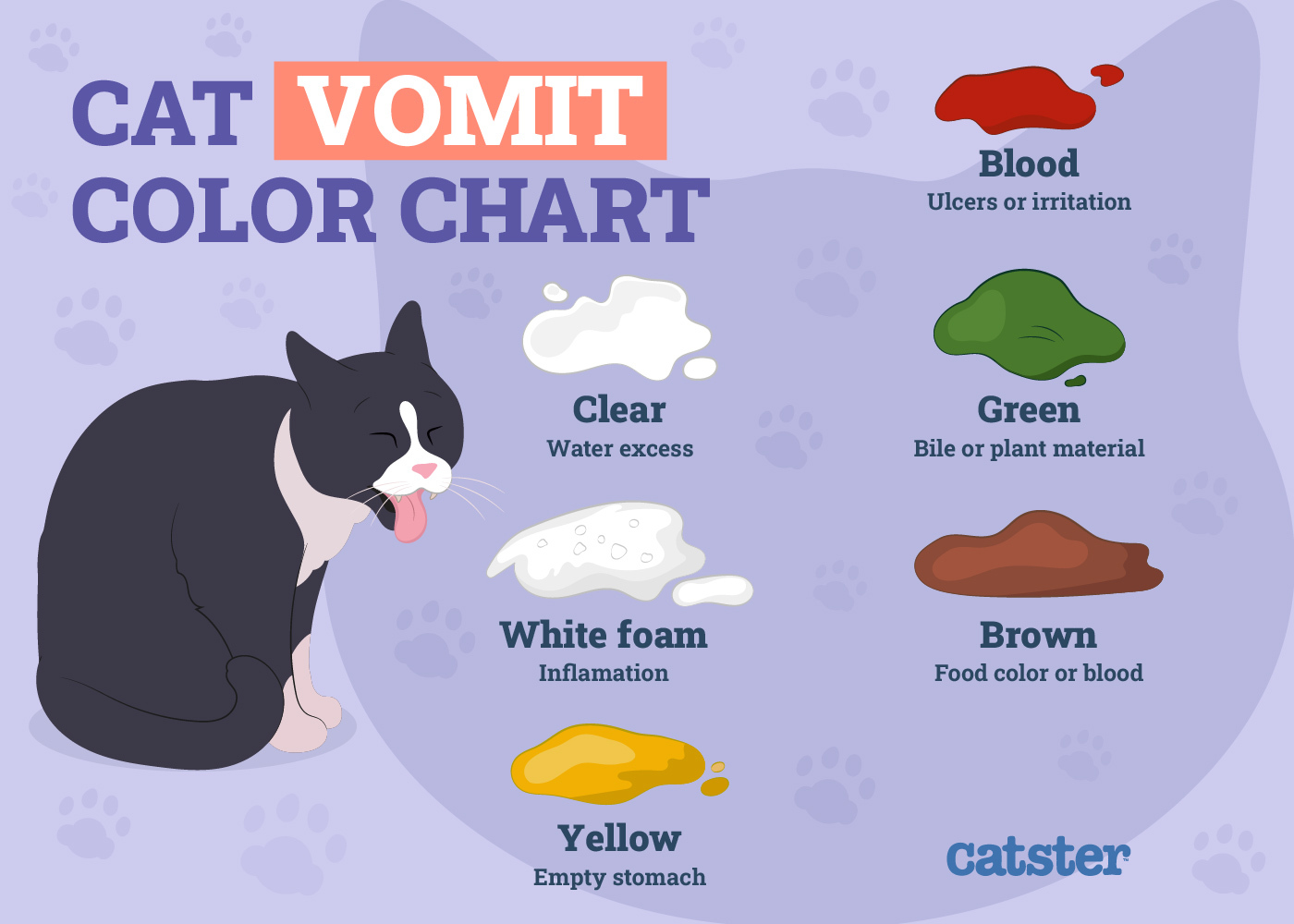
Your cat could be throwing up liquid for many different reasons, including renal failure, overactive thyroid, or digestive issues. The reasons this fluid might be brown include:
1. Diet
Most cat foods are varying shades of brown, so brown-hued vomit is not a huge surprise. However, if your cat’s food tends to be a paler beige or yellow, we need to consider other causes.
2. Bleeding in the Gastrointestinal Tract
Fresh blood from the esophagus or stomach will show up as red or pink in the vomit, but if there is a slow bleed (e.g., from a gastric ulcer) or if there is bleeding further along in the intestines, this can appear brown or even black when thrown up. If you suspect your cat’s vomit may contain blood, you should contact your vet immediately.
3. Fecal Matter
If your cat has an obstruction further down the intestines or large bowel, this can cause fecal matter to back up in the digestive tract and appear as vomit. The smell of the liquid will be the most obvious indication that this is the problem, and it is a sign that your cat needs urgent veterinary care.

If you need to speak with a vet but can’t get to one, head over to PangoVet. It’s an online service where you can talk to a vet online and get the personalized advice you need for your pet — all at an affordable price!
Vomiting vs. Regurgitation
Apart from the color of what your cat is throwing up, we need to know whether we are dealing with vomiting or regurgitation.
What’s the Difference?
Vomiting, or throwing up, is an active process whereby the contents of the stomach or small intestines are forced upward into the esophagus and out of the mouth. It is usually accompanied by signs of nausea (drooling, lip smacking, appearing unwell) and involves abdominal effort. The material produced when vomiting typically includes fluid, partially digested food, or hairballs.
- Food intolerance/inflammatory bowel disease
- Systemic illness (e.g., hyperthyroidism, kidney disease, liver disease, pancreatitis)
- Toxin ingestion
- Intestinal obstruction/hairballs
- Intestinal parasites
Regurgitation is a more passive reflex, whereby food is ejected from the esophagus before or as it reaches the entry to the stomach. There are usually little or no signs of nausea, and the material brought up closely resembles what went in.
- Esophageal obstruction/hairballs
- Congenital defect (e.g., persistent right aortic arch)
- Megaesophagus
- Eating too quickly
- Gastrointestinal motility issues/delayed gastric emptying
If your cat is throwing up brown liquid, we are mostly likely dealing with vomiting, unless they are regurgitating undigested gravy. If in doubt, take a photo of the liquid to show your vet.
Conclusion
There are many reasons why our cats might throw up, and the more information we can give our vets, the more quickly we can reach a diagnosis. Being able to describe whether your cat is vomiting or regurgitating, how much, how frequently, and the consistency and color of the material are all important factors to be aware of, and photographs can also be very helpful.
If your cat is throwing up brown liquid, it may simply be due to the type of food they are eating, how fast they are eating or it could be a sign of bleeding in the digestive tract or even a severe obstruction. In any case, a cat that is throwing up brown liquid should be seen by a vet.
Although it’s true that most cats will vomit from time to time, brown liquid could be a sign of a more serious problem, so it is better to have them examined sooner rather than later.
Featured Image By: Nils Jacobi, Shutterstock

